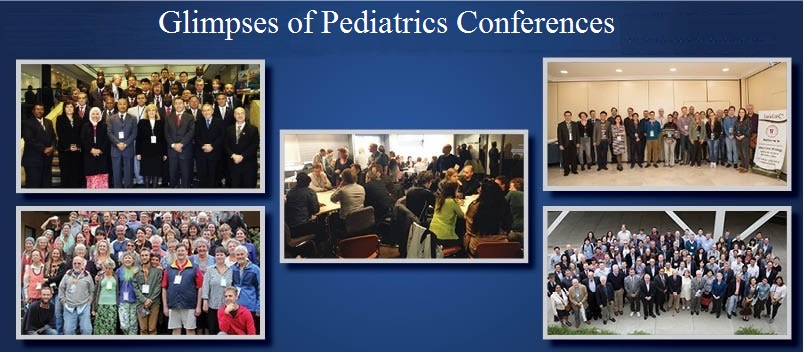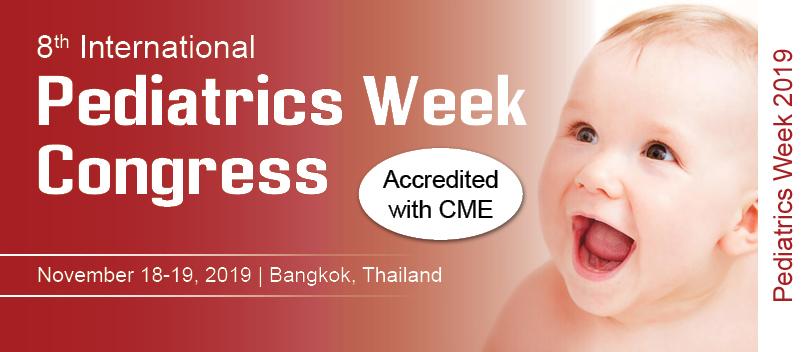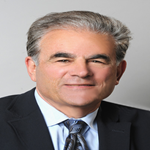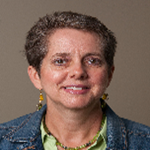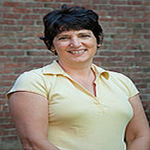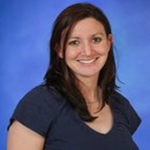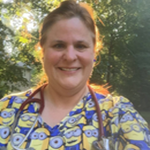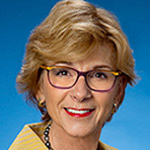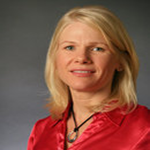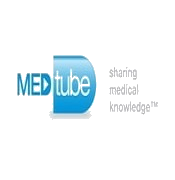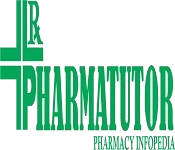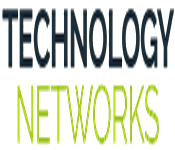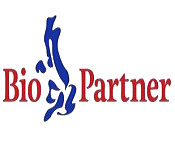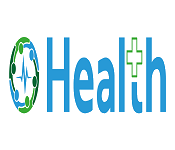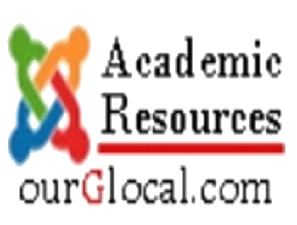8th Pediatrics Week 2019
About Conference
Euroscicon Ltd is delighted to welcome you all to the “8th International Pediatrics Week Congress” which is going to be held during November 18-19, 2019 at Bangkok, Thailand. Through the theme “Excellence in Pediatrics and Neonatal Research”, the conference aims at analysing the recent advances and novel researches which in the field of Neonatology, Pediatrics and Adolescent health.
Pediatrics Week 2019 features outstanding and internationally renowned neonatologists, paediatricians, academicians and researchers. The representations include premier medical universities, hospitals and healthcare/pharma industries from all around the globe. The topics covered at the conference would range a spectrum of Neonatology, Pediatrics and Adolescent health. Attendees of the conference would be delighted to witness various interactive workshops, keynote lectures, speaker talks, and poster presentations and most significantly the exhibitions held by the top healthcare and pharma industries. The conference also has Young Research Forum, where the budding researchers are encouraged to give oral presentations.
ABOUT US:
EUROSCICON is the longest running independent life science events company with a predominantly academic client base. Our multiprofessional and multispecialty approach creates a unique experience that cannot be found with a specialist society or commercially.
EuroSciCon organizes International Meetings annually across Europe which includes Austria, Ireland, Germany, France, Liechtenstein, Lithuania, Finland, Luxembourg, Hungary, Italy, Norway, Poland, Denmark, Macedonia, Greece, Portugal, Romania, Czech Republic, Switzerland, United Kingdom, Belgium, Scotland, Latvia, Ukraine, Sweden, Denmark, Spain, Netherlands Russia, Bulgaria, France, with solitary subject of quickening logical revelations.
WHY PEDIATRICS WEEK 2019?
The conference gives you one of the finest opportunities to engage with the eminent doctors and researchers from the area of Pediatrics and Neonatology. With your knowledge presented here for the benefit of the world you can inspire more people to enhance their research. Most prominent speakers, advanced technologies and discoveries in the field of pediatrics and neonatology; are the highlights of this two day conference.
Marked Spectators:
- Paediatricians
- Neonatologists
- Academicians
- Researchers
- Nurse Practitioners
- Physician Assistants
- Young researchers
- Aspiring students
- Medical Equipment Companies
- Residents
- THE ONE READING THIS!!
For Business Delegates:
- Speaker Presentations
- Symposium hosting
- Book Launch event
- Networking opportunities
- General participation
For Companies:
- Exhibitor and Vendor booths
- Sponsorships opportunities
- Product launch
- Workshop organizing
- Scientific Partnering
- Marketing and Networking with clients
Sessions / Tracks
Track 1: General & Clinical Pediatrics
Pediatrics is one of the interdisciplinary fields of medicine which is mostly concerned with the medical, health care and development of newborn babies and children and their potential to get complete growth into adulthood. Pediatrics usually follows the age range from infants to adolescents. The main objective of the pediatric care is to reduce the child and infant death rates, to control the transmission of infectious diseases and to promote healthy lifestyles. Pediatrics is not only concerned about the immediate cure but also the long term effects on quality life, abilities and survival. Clinical pediatrics focuses on the aetiology, diagnosis, and treatment of child illnesses.
Neonatology is one of the subspecialties of pediatrics which deals with the medical care of ill or premature babies. A few conditions to mention include low birth weight, birth defects, growth restrictions, sepsis, and birth asphyxia. In general neonatologists provide the medical care for the illborn in Neonatal Intensive Care Units (NICU). Rather than focusing on a particular organ system, neonatologists focus on the care of newborns who require Intensive Care Unit (ICU) hospitalization. They may also act as general pediatricians, providing well newborn evaluation and care in the hospital where they are based.
Track 3: Pediatric Primary Care
Pediatric Primary Care is the healthcare given by a pediatrician to infants, children and adolescents. Primary care to patients is mostly received from professionals such as pediatric primary care physician, pediatric nurse practitioner or a physician assistant. Primary care is the day-to-day attention given by a health care provider. Typically these providers acts as the first contact and primary point of continuing care for patients within a healthcare system, and organize other specialist care that the patient may need.
Track 4: Pediatrics Critical Care and Emergency Medicine
Critical care pediatrics usually involves constant observation and attention with special care by a team of specially trained pediatricians. Usually, Critical care takes place in the Intensive Care Unit. Few conditions which may cause during critical condition are severe asthma, severe infection such as pneumonia and serious injuries from accidents. Critically ill children need careful monitoring with special medicine or treatment which can be maintained only in the PICU- Pediatrics Intensive Care Unit. Having advanced facilities in place is important to save a life during critical conditions. Emergency medicine is the basic medical facility concerned with immediate medical attention. This field prepares pediatricians with the knowledge and skills required to care for patients with emergency healthcare needs.
Pediatric surgery is a subspecialty of surgery involving the surgery of fetuses, infants, children, adolescents, and young adults. Common pediatric diseases that may require pediatric surgery include congenital malformations, abdominal wall defects, chest wall deformities, childhood tumors and Separation of conjoined twins.
Pediatric nursing is the clinical health care of neonates and children up to the stage of adolescence. The role of a pediatric nurse is to conduct procedures and provide medicines according to the prescribed nursing care plans and assessing them continuously. Neonatal nursing is a branch of health care which mainly focuses on nursing newly born babies who were born prematurely, with defects, infections, deformities, etc. Pediatric emergency nursing is a branch of pediatric nursing which has fast mobility and quick response in emergency situations such as stabilizing patients with focused care, quickly diagnosing conditions and coming up with on-spot solutions, providing right medicines at the right time. Pediatric nurses play a vital role in all the pediatric clinics and hospitals. Their timely support is always much appreciated.
During the growing years between infancy and adolescence, adequate nutrition is of utmost importance. The child's diet will not only support their normal growth and development, but also supports their immune system, and develops lifelong eating habits. In the early days, especially in the first six months after birth the child must be on exclusive breastfeeding. It is the only way to induce nutrients in such stage to achieve optimal growth, development, and health. Although dietary needs, appetites, and tastes will vary widely throughout childhood, it is important to consistently provide the child with healthy options from all of the major food groups. Good nutrition is essential to good health.
A child's immune system is designed to fight infections. If it is not working the way it should, the child may suffer from many kinds of health problems. In those cases, a pediatric immunologist is consulted for the treatment.
Track 9: Pediatric Infectious Diseases and Allergies
The aim of the study of Pediatrics infectious disease is to reduce the death rate of infants and children, control the spread of infectious diseases, and promote healthy lifestyles for a long disease-free life of children and adolescents. Pediatric infectious diseases are the diseases which affect the child by infectious agents such as bacteria, fungus, parasite, etc.
Sometimes children suffer from allergies; if his/her immune system reacts against to things which are even harmless. Few examples of such symptoms are sinusitis, thrush, abscesses and pneumonia which revert again. General treatment is provided for the following conditions such as asthma, hay fever, hives, vocal cord dysfunction, recurrent infection, eczema, atopic dermatitis, chronic cough, severe reactions to insects, foods and medications etc.
Track 10: Pediatric Vaccines and Immunization
Babies are born with protection against some diseases because their mothers pass antibodies to them before birth. Breastfed babies continue to get more antibodies in breast milk. But in both cases, the protection is temporary. Immunization (vaccination) is a way to create immunity to some diseases. This is done by using small amounts of a killed or weakened germ that causes the disease.
Germs can be viruses (such as the measles virus) or bacteria (such as pneumococcus). Vaccines stimulate the immune system to react as if there were a real infection. It fends off the "infection" and remembers the germ. Then, it can fight the germ if it enters the body later. Immunization with 3 doses of diphtheria, tetanus, and pertussis (DTP) vaccine is recommended for children within the first year of life.
Track 11: Pediatric Genetic Disorders
Pediatric genetic disorders includes certain types of birth defects, chronic diseases, developmental problems and sensory deficits that are inherited from one or both parents. The common disorders include Congenital malformations, Chromosomal disorders, Metabolic diseases, Inborn errors of metabolism, etc. Few of these disorders require a pediatric surgery.
Track 12: Pediatric Cardiology and Hematology
Pediatric cardiology is the branch of pediatrics which involves diagnosing and treating heart problems in children. Several conditions such as structural differences during birth, an electrical system which controls the heartbeat, valve problems, abnormal blood vessels, are included in the term heart problems. Heart problems in children can be complex at times and can occur with many other complications. Hematology is the branch of medicine concerned with the study of the cause, prognosis, treatment, and prevention of diseases related to blood.
Pediatric Neurology is a functional branch in the medical field dealing with the diagnosis and treatment of diseases related to neurology in Neonates (newborns), children, infants to adolescents. The topic Pediatric Neurology includes all diseases and disorders related to the spinal cord, peripheral system, brain, autonomic nervous system, muscles and blood vessels which affect individuals of small age groups. Various types of conditions to be dealt in pediatric neurology are genetic diseases related to nervous system, childhood epilepsy, muscular dystrophy, hyperactivity disorder, cerebral palsy, febrile seizures, autism spectrum disorders, migraine, sleep disorders, head injuries, intellectual disability, etc. following studies are required to diagnose the neurological conditions: nerve conduction study, EEG, EMG, multiple sleep latency testing, electrocortical mapping etc.
Track 14: Pediatric Endocrinology and Diabetes
Pediatric Endocrinology is concerned about the disorders related to the dysfunction of hormones and glands which results in problems of diabetes, puberty, and growth. Endocrine glands, such as pituitary gland releases hormones into the bloodstream which decides how a child grows and mature. Pediatric endocrinology mainly deals with hormone disorders at all stages of childhood. Hormones exhibit significant effects or changes on the child’s physical activity, the emotional state of well-being and development of sexuality. Other few conditions are diabetes mellitus, hypoglycemia, amenorrhea, growth concerns, congenital adrenal hyperplasia, Turner syndrome, gender dysphoria, thyroid disorders, etc.
Track 15: Pediatric Gastroenterology and Hepatology
Pediatric gastroenterology developed as a sub-specialty of pediatrics and gastroenterology. It is concerned with treating the gastrointestinal tract, liver and pancreas of children from infancy until age eighteen. The principal diseases it is concerned with are acute diarrhea, persistent vomiting, gastritis, and problems with the development of the gastric tract.
Track 16: Pediatric Nephrology and Urology
It is usual for children to have disorders related to urinary tracts such as kidney, ureters, urethra, and bladder. These problems can be negligible or serious. In case of serious condition, then one should see a specialist in nephrology and urology. Few conditions of nephrology and urology to be diagnosed are abnormal conditions in acid-base disorders, urine, hypertension, bedwetting, high blood pressure, acute and chronic kidney failure, cancer of urinary and genital systems, bladder exstrophy, renal insufficiency, kidney stones, and urinary tract infections inherited kidney diseases torsion of the testicles and neurogenic bowel. It can also provide pediatric patients with end-stage kidney disorders and follow up care after kidney transplantation.
Every cell in the body has its own controlled system for growth, interaction, and lifespan. When a cell loses its growth control, interaction levels, it undergoes uncontrolled and irregular cell division or growth results in cancer. This cancer effects to any age group of people but the diagnosis will be differs based on the age group. Here in children, the cancer is studied as Pediatric Oncology. Children can be affected by cancer to any parts of the body and these childhood cancers occur in sudden without any symptoms but have a high rate of cure. The most listed type is leukaemia in children and also others include brain tumours, lymphoma, and soft tissue sarcoma. The diagnosis depends on the type of cancer and how advanced it is.
Pediatric radiology is a discipline of diagnostic radiology focused on children, from newborn babies to early adulthood. Pediatric radiology employs a wide range of techniques such as X-Rays, Ultrasound, CT, MRI, Nuclear medicine. Pediatric radiology is also involved in imaging fetuses. A common pediatric pathologic condition which requires imaging is leukemia, teratoma, congenital abnormalities, meningitis, Wilm's tumor, osteosarcoma, juvenile arthritis, and infant respiratory distress syndrome. It is the utmost sensitive field due to the reason that children’s body reacts unlike an adult’s body while imaging but these days special imaging equipment has come into existence which is compatible with infants.
Track 19: Pediatric Ophthalmology
Pediatric ophthalmology is a sub-speciality of ophthalmology concerned with eye diseases, visual development, and vision care in children. Pediatric ophthalmologists focus on the development of the visual system and the various diseases that disrupt visual development in children. Pediatric ophthalmologists also have expertise in managing the various ocular diseases that affect children. Pediatric ophthalmologists are qualified to perform complex eye surgery as well as to manage children's eye problems using glasses and medications.
Track 20: Pediatric Pulmonology and Respiratory Disorders
Pediatric pulmonology is a subspecialty that deals with the diagnosis and treatment of children with breathing problems. Common conditions include Asthma, Pneumonia, Wheezing, Bronchitis, Apnea and Cystic Fibrosis.
Pediatric Dentistry is about the oral strength of kids from the outset to early adulthood. The term oral health includes health conditions of teeth, gums, mouth throughout several stages of childhood. If early dental problems are not cured instantly, they may cause lifetime pain and other complications. Services provided by pediatric dentist include fluoride treatment, space maintainers’ athletic mouth guards, and fillings. There is a chance that infected baby teeth can damage children adult teeth developing below them. Decay free primary teeth are very crucial to create a healthy environment for a child’s permanent teeth which reduces the chance of tooth decay.
Track 22: Pediatric Otolaryngology
Pediatric Otolaryngology is the branch of pediatrics which is mainly concerned about complex medical treatment for problems or illness affecting the ear, nose or throat. It also involves diagnosis and treating head and neck diseases. Few conditions which are included in pediatric otolaryngology are chronic tonsillitis, benign and malignant growths of head and neck, laryngomalacia, pediatric sinus surgery, tumors of ears aerodigestive, cochlear implant, cleft and craniofacial, children thyroid disorder, ear canal atresia, sleep disorders, vascular anomalies, vocal cord dysfunction, voice and swallowing disorders etc.
Track 23: Pediatric Dermatology
Pediatric dermatology is mostly concerned about disorders related to skin or conditions such as eczema, warts, hemangiomas, cutaneous leishmaniasis, cutaneous melanoma, contact dermatitis, psoriasis, atopic dermatitis, hives, vitiligo, genetic skin disorders, and ringworm and skin cancer. It also includes some minor surgical procedures such as surgical removal of skin lesions, skin biopsies and laser treatment of vascular birthmarks. Many childhood disorders such as infantile hemangiomas blood vessel growths are not seen in adults and common conditions such as psoriasis have unique symptoms in children, unlike adults.
Track 24: Child and Adolescent Obesity
The problem of overweight and obesity has reached epidemic proportions globally. Childhood overweight and obesity are associated with several negative consequences. The Bogalusa Heart Study found that childhood obesity is associated with cardiovascular risk factors. Overweight and obesity in childhood is also responsible for several psychological problems such as discrimination, lower self-esteem, depression, body image disturbance, rejection by peers, impaired quality of life, and stigmatization. Childhood obesity tends to persist into adulthood. Treating Child and Adolescent Obesity at the right time reduces various health problems.
Track 25: Pediatric Pharmacology
The concern and research in pediatric pharmacology have risen above the line in the last two decades but is still limited to pharmacokinetics. Pediatric pharmacology has been the multi-disciplinary topic which concerns about the effective and safe use of medications in neonates and infants. Pediatric pharmacology mostly focuses on the drug mechanism of action, its effect on body, drug-drug interaction and its side effects.
Track 26: Pediatric Rehabiliation
Pediatric Rehabilitation medicine is used to diagnose, treat, prevent and manage congenital and childhood-onset physical impairments. Medical, physical, function, psychosocial, and vocational limitations or conditions are related to Paediatric rehabilitation medicine. The specialized person should have complete training in the identification of functional capabilities and selection of the best rehabilitation intervention strategies, with an understanding of the continuum of care throughout the course of disability. Pediatric rehabilitation is concerned more about building strength and improving skills. It’s more about inspiring children to gain the skills and confidence to reach their full potential. And it’s also about supporting families throughout the rehabilitation period.
Track 27: Child Abuse and Prevention
Child Abuse Pediatricians are those who are responsible for the diagnosis and treatment of children and adolescents who are suspected victims of any form of child maltreatment. Child abuse Paediatrics specializes in the prevention, identification and treatment of child abuse and neglect. They are related to understanding the effects of child abuse and mistreatment and improving behaviors, evaluations, and outcomes.
Track 28: Pediatric Hospice and Palliative Care
Pediatric and neonatal palliative care includes all measures taken to lessen suffering at every stage of a child's illness. The PAC team guides children and their families through the hospital experience. It focuses mainly on providing relief from the symptoms, pain, and stress of a serious illness.
Learn More
Top Pediatrics Universities Worldwide:
Harvard University | University of Cambridge | University of Oxford | Massachusetts Institute of Technology | Pediatric Cardiology Conferences | Stanford University | Johns Hopkins University | Karolinska Institute | University of California | University of California | Yale University | Pain Medicine Conferences |University College London | Pediatric Oncology Conferences | Imperial College London | Pediatric Allergy Conferences | The University of Melbourne | University of Pediatrics | University of California Berkeley | University of Toronto | University of California San-Diego | The University of Sydney | Neonatology Conferences | Pediatric Endocrinology Conferences | King’s College London | Duke University | Pain Medicine Conferences | National University of Singapore | Electrophysiology Conferences | University of Edinburgh | Pediatric Critical Care Conferences | The University of Tokyo | Pediatrics Conferences |University of Pennsylvania | University of Washington | Cornell University | Columbia University | Pediatrics Conferences University of Copenhagen | Neonatology Conferences | McGill University | Monash University | University of British Columbia | University of Michigan | Pediatric Oncology Conferences | The University of Queensland | Washington University in St Louis | University of Hong | Kong | Pediatrics Conferences | Seoul National University | Pain Medicine Conferences | University of Amsterdam | University of Chicago | Pediatrics Conferences | Pediatric Allergy Conferences | London School of Hygiene & Tropical Medicine | Neonatology Conferences | University of North Carolina | Kyoto University | Pediatrics Conferences | Boston University | Heidelberg University | University of Zurich | Ludwig Maximilian University of Munich | National Taiwan University | Pediatric Cardiology Conferences | New York University | The University of New South Wales | University of Glasgow | Pediatrics Conferences |Uppsala University | Pediatric Allergy Conferences | The University of Manchester
Europe Pediatrics Universities:
University of Graz | University of Innsbruck | Ontanuniversität Leoben | Johannes Kepler University | Ghent University | Pediatric Oncology Conferences | University of Split | University of Zagreb | Charles University | Palacký University | University of Pardubice | Pediatric Emergency Medicine Conferences | University of Copenhagen | Pain Medicine Conferences | Aalto University | University of Grenoble | Lille Univeristy | Neonatology Conferences | University of Lyon | Chimie paris tech | Laboratory Analytical Sciences Bio-analytics and Miniaturization | Univeristy of Poitiers | Neonatology Conferences | University of Pau and Adour Country | Electrophysiology Conferences | University of Reims Champagne-Ardenne | Neonatology Conferences | University of Strasbourg | University in Aachen | Pediatric Allergy Conferences | University of Bayreuth | Pediatric Emergency Medicine Conferences | Technical University of Berlin | Free University of Berlin | Ruhr University Bochum | Pediatric Cardiology Conferences | University of Bonn| Pediatric Endocrinology Conferences | University of Alicante | University of Barcelona | University of the Basque Country | University of Cádiz | Neonatology Conferences | University of Extremadura | University of Granada | Electrophysiology Conferences | University of Jaén | University of Oviedo | University of Santiago de Compostela | University of Valladolid | University of Vigo | University of Zaragoza | Stockholm University | Electrophysiology Conferences | University of Bradford | University College Cork | Masaryk University | Pediatric Allergy Conferences | Robert Gordon University | Sheffield Hallam University | University of Southampton | University of Warwick
Brigham Young University | California State University | California State University | Neonatology Conferences | Case Western Reserve University | Clarkson University | Pediatric Allergy Conferences | Cleveland State University | Florida State University | Georgetown University | The George Washington University | Electrophysiology Conferences | Governors State University | Howard University | Illinois Institute of Technology | Indiana University | Pediatric Emergency Medicine Conferences | Adolescent Medicine Conferences | Kansas State University | Kent State University| Marquette University | Miami University | Pain Medicine Conferences | North-eastern University | Electrophysiology Conferences | Old Dominion University | Pediatric Cardiology Conferences | Oregon State University | Purdue University | New Brunswick Piscataway | Seton Hall University | South Dakota State University | Stevens Institute of Technology | Pediatric Allergy Conferences | Tufts University | University of Cincinnati |Electrophysiology Conferences | University of Georgia | Pediatric Endocrinology Conferences | University of Louisville | University of Maryland | University of Missouri | Adolescent Medicine Conferences | The University of Montana | Pediatric Oncology Conferences | University of Nebraska | Pain Medicine Conferences | University of Southern Mississippi | Pediatric Allergy Conferences | University of South Florida | The University of Tennessee | The University of Texas at Austin | University of Toledo | Vanderbilt University | Wake Forest University | Washington State University
Nanyang Technological University | Tsinghua University | National University of Singapore | Peking University | University of Tokyo | Zhejiang University | Pediatric Allergy Conferences | Nanjing University | Kyoto University | Fudan University | University of Science and Technology of China | Electrophysiology Conferences | Osaka University | Korea Advanced Institute of Science and Technology | East China University of Science and Technology | Dalian University of Technology | Xiamen University | Jilin University | Pain Medicine Conferences | Nankai University | Tohoku University | National Taiwan University | Pediatric Allergy Conferences | Seoul National University | Shanghai Jiao Tong University | King Abdullah University of Science & Technology | Pediatric Emergency Medicine Conferences | Hong Kong University of Science and Technology | National Tsing Hua University |Pediatric Oncology Conferences | Adolescent Medicine Conferences | Indian Institute of Science | King Abdulaziz University |Pediatric Cardiology Conferences | Indian Institute of Technology Bombay | Pediatric Critical Care Conferences | University of Malaya | Istanbul Technical University | Electrophysiology Conferences | Universiti Sains Malaysia | Indian Institute of Technology Madras | Middle East Technical University | Pain Medicine Conferences | National Cheng Kung University | Chulalongkorn University | King Fahd University of Petroleum and Minerals | Keio University | Pediatric Emergency Medicine Conferences | Universiti Putra Malaysia | Ege University | Pediatric Allergy Conferences | Jiangsu University | Southwest University | Pediatric Hematology Conferences | National Taiwan University of Science and Technology | Tel Aviv University | Chonbuk National University | Donghua University | Hiroshima University | Beihang University | Waseda University | Electrophysiology Conferences | Technion Israel Institute of Technology | Tongji University
Pediatrics Societies & Association :
Academic Pediatric Association | Academy of Medical-Surgical Nurses | Academy of Neonatal Nursing | Pediatric Nephrology Conferences | Academic Pediatric Association |Pediatric Otolaryngology Conferences | Pediatric Gastroenterology Conferences | Pediatric Gynecology Conferences | Academy of Medical-Surgical Nurses |Academy of Neonatal Nursing Aimee's Army Childhood Cancer Foundation |American Academy of Nursing |American Academy of Pediatric Dentistry |Pediatric Emergency Medicine Conferences | American Academy of Pediatrics |American academy of Pediatrics Breastfeeding |American Academy of Pediatrics Georgia |American Association of Critical-Care Nurses |American Association of Pediatric Urologists |Pediatric Allergy Conferences | Pain Medicine Conferences | American board of Pediatrics |Pediatric Critical Care Conferences | Pediatric Pulmonology Conferences | American Gastroenterological Association |American Pediatric Society |American Pediatric Surgical Association |Pediatric Oncology Conferences | Child Neurology Conferences | Pediatric Ophthalmology Conferences | American Pediatric Surgical Nurses Association |Pediatric Hematology Conferences | American Society for Echocardiography Conferences |Pediatric Ophthalmology Conferences | American Society for Gastrointestinal Endoscopy |Pediatric Emergency Medicine Conferences | Pediatric Otolaryngology Conferences | American Society for Parenteral and Enteral Nutrition |American Society of Nuclear Cardiology |American Society of Pediatric Hematology and Oncology |Pediatric Endocrinology Conferences | Pediatric Gynecology Conferences | Pediatric Otolaryngology Conferences | American Society of Pediatric Otolaryngology |Child Psychiatry Conferences | Pediatric Ophthalmology Conferences | American Society of Preventive Cardiology |Pediatric Rehabilitation Medicine Conferences |American Trauma Society |Ashley Foundation |Asia Pacific Pediatric Endocrine Society |Pediatric Emergency Medicine Conferences | Pediatric Gynecology Conferences | Asian Pacific Association of Gastroenterology |Pediatric Infectious Disease Conferences | Electrophysiology Conferences |Pediatric Allergy Conferences| ASK Childhood Cancer Foundation |Pediatric Critical Care Conferences | Pediatric Nephrology Conferences | Pediatrics Epilepsy Conferences | Association of Gastroenterologists of Bosnia and Herzegovina |Pediatric Surgery Conferences | Pain Medicine Conferences | Pediatric Gastroenterology Conferences |Pediatric Otolaryngology Conferences | Association of Nurses in AIDS Care |Pediatric Cardiology Conferences | Pediatric Ophthalmology Conferences | Association of Pediatric Haematology/Oncology Nurses |Pediatric Hematology Conferences | Pediatric Gynecology Conf

